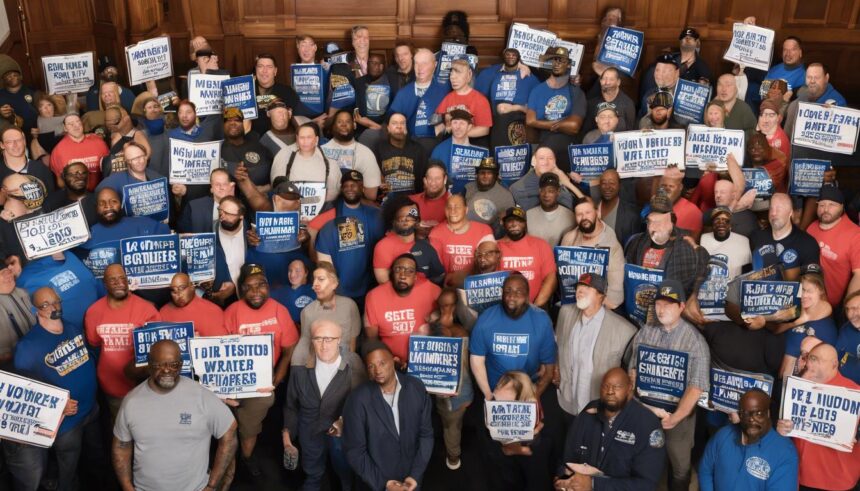Teamsters Local 25 is gearing up for a crucial vote that could significantly impact gig workers in Boston, with the focus on legislation aimed at improving conditions and rights for those classified as independent contractors.
In an atmosphere charged with the ongoing debates surrounding the rights of gig workers, Boston’s Teamsters Local 25 is positioning itself firmly in the fray. On Sunday, April 21, 2024, union members are set to hold a significant vote during a general membership meeting, which will see the involvement of State Senator Lydia Edwards. The session is focused on whether to endorse two pivotal pieces of legislation, S.627 and H.1158, aimed vehemently at combating the misclassification of workers—particularly those engaged with app-based companies.
The nexus of this legislative movement is to protect union members and expand the reach of collective bargaining rights to gig workers. These workers, often associated with giants like Uber, Lyft, and Instacart, currently endure precarious job conditions due to their classification as independent contractors rather than employees. This classification effectively exempts them from the benefits enjoyed by their W-2 counterparts, including minimum wage rights, overtime pay, and unemployment insurance.
The backdrop to this local decision is the broader tension within Massachusetts and beyond, where debates over gig worker rights have intensified. Uber, Lyft, and other app-based platforms have proposed a referendum slated for the November ballot, which legitimises their business model of employing independent contractors—an initiative the Teamsters are vocally opposing. According to Tom Mari, President of Local 25, what these companies hail as innovative business practices are, in fact, exploitative. “Misclassification isn’t innovation — it’s a racket that cheats everyone except the companies that exploit it,” Mari stated, emphasizing the union’s stance that worker misclassification is a form of wage theft.
The fight against misclassification in Massachusetts mirrors a nationwide conversation and series of legal battles aiming to define the future of work in a gig economy. Critically, the outcome could reshape the employment landscape, influencing how app-based firms operate across the country. In states like California, similar battles have been fought, most notably involving Proposition 22, which allowed companies to continue treating drivers as independent contractors while offering limited benefits, a measure heavily funded by ride-hailing and delivery platforms.
The forthcoming vote by Teamsters Local 25 could catalyse further legislative support against the misclassification, providing a blueprint for other states grappling with these issues. If S.627 and H.1158 pass, this could embolden more robust protections and benefits for gig workers, potentially setting a legal precedent.
Senator Lydia Edwards’ involvement signifies the critical nature of this vote, highlighting the intersection of politics and workers’ rights at the state level. Her attendance at the meeting underscores the legislative backing for stronger protections for gig workers, a segment of the workforce growing in number but lacking in security and benefits.
The meeting, open to the public and press, is not just a procedural occurrence but a pivotal moment in the ongoing narrative about the rights of gig workers, possibly setting the stage for future political and legal developments in worker classification.





